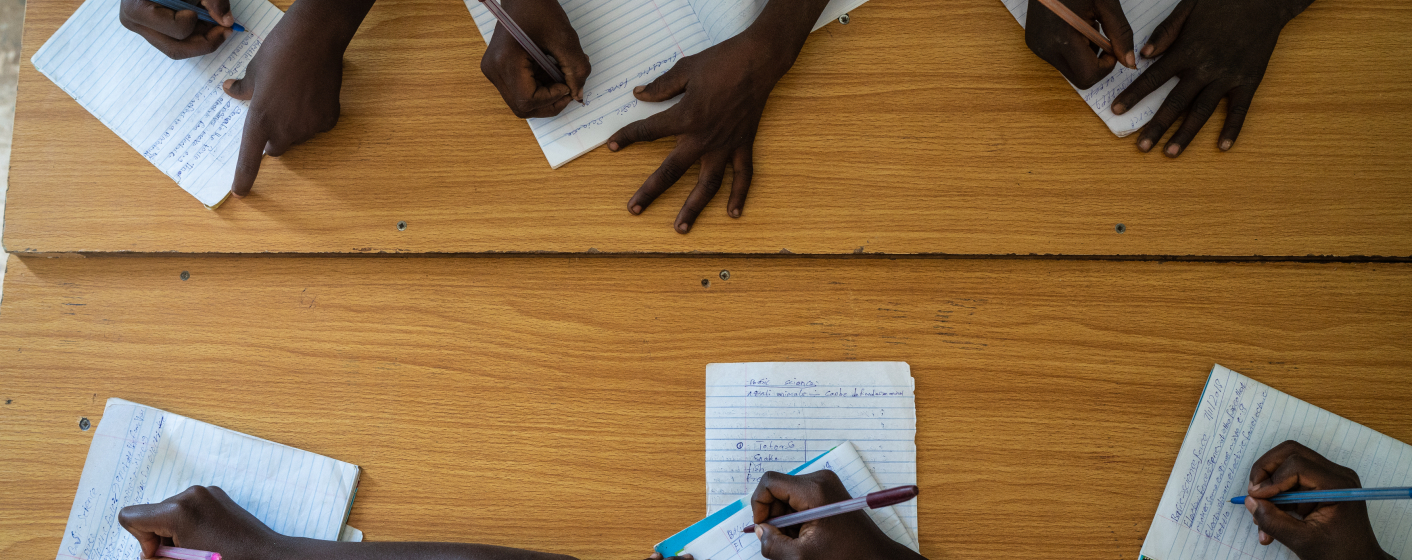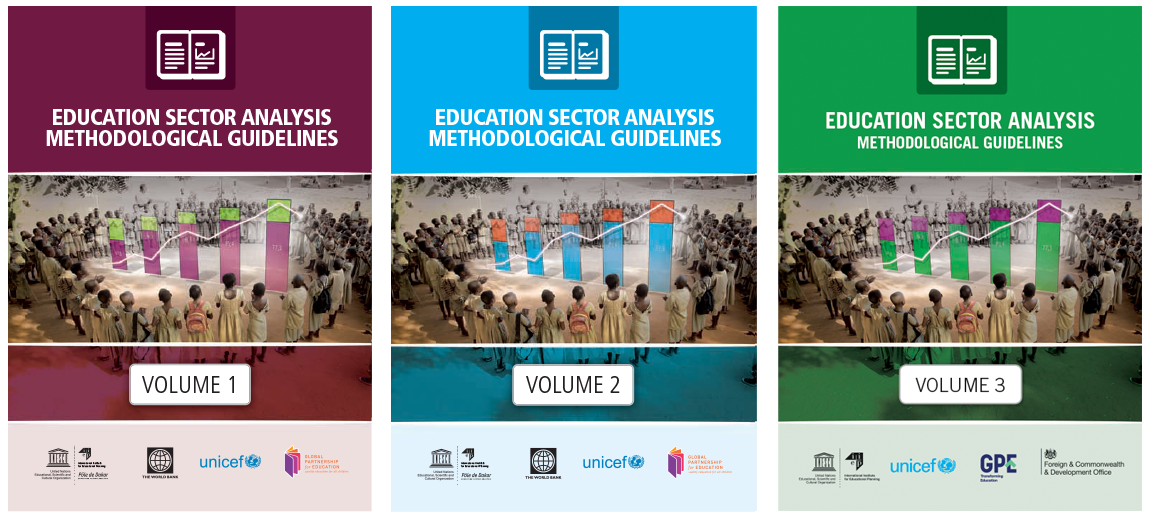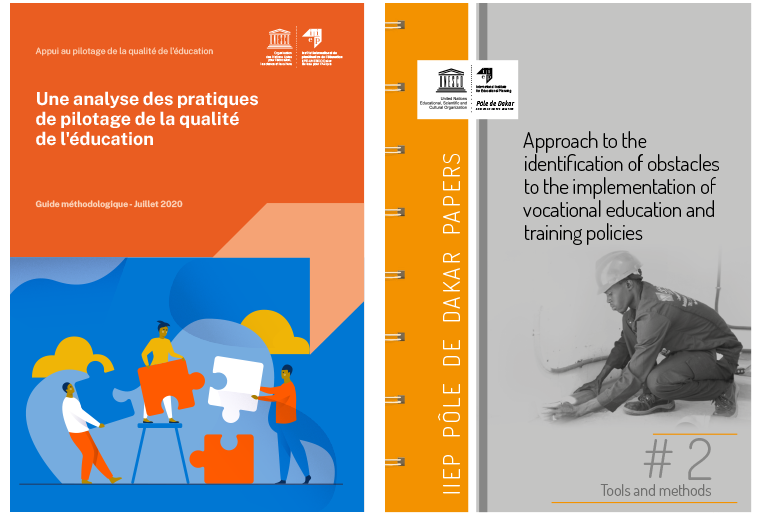IIEP-UNESCO Dakar produces knowledge, develops tools and promotes the sharing of experiences in the field of education and training in Africa.
- Research and development (R&D) activities.
- Thematic studies and applied research on decisive issues for the future of the continent.
- The development of technical, digital, or methodological solutions based on our research and experience.
- The dissemination of information and the sharing of resources and best practices.

Our vision of R&D
A springboard for action
Research has been an essential component of IIEP-UNESCO since its inception. Our Africa office has recently established its own R&D programme to complement the activities carried out at the institute’s headquarters.
Our objectives are as follows:
- Develop, expand, and refine knowledge to meet the needs and challenges of African education systems
- Nurture our own training and technical assistance activities based on research findings
- Develop technical solutions and practical tools based on our studies and lessons learned from our direct technical assistance to countries. And thus, assist our partners in the planning decisions and operational management of their education and training systems
- Share our research results with a community of education and training system specialists and practitioners. Facilitate policy dialogue between stakeholders and the sharing of good practices, through the organisation of forums or the promotion of exchange platforms
“Our research activities target real-world issues of major relevance to African education and training systems. Our role is to generate knowledge and discussion based on scientific evidence, leading to effective, efficient and sustainable solutions. And to potentially impact the lives of children, youth, adults, and women in Africa.”
Our R&D projects
The research and development activities of IIEP-UNESCO Dakar are guided by the real concerns and needs of education and training stakeholders in Africa. They cover five priority themes, in line with the 2030 Agenda for Education and the United Nations Sustainable Development Goal 4 (SDG 4).
- Funding for education
- Quality of education
- Inclusive education
- Education and demography
- Employability and youth employment
Some of our R&D projects are directly in line with the thematic action programmes carried out by our office: The Gender at the Centre Initiative (GCI) on the issue of gender equality in education; the Platform of Expertise in Vocational Training (PEFOP) in the field of TVET; and quality education management support programme.
More broadly, our R&D team collaborates with development aid partners, academic and research institutions located on the African continent or that have experience working there.
Our methods
By developing and sharing methods of analysis based on research and field experience, the IIEP-UNESCO Dakar contributes to equipping education sector stakeholders. This is done with a view to strengthening the capacities and autonomy of countries at all stages of the educational planning cycle.
Access the series of methodological guides for education sector analysis

Access the latest thematic methodological resources

- Diagnostic methodology for quality management practices in basic education (in French only)
- Approach to the identification of obstacles to the implementation of vocational education and training policies
Our strength
Capitalizing on experiences and promoting exchanges
IIEP-UNESCO Dakar regularly mobilises education and training stakeholders in Africa through meetings, events, or thematic webinars. The objective: to invite policy makers and education system specialists to share their experiences and best practices in management and sector planning.
In the framework of technical support projects for the TVET sub-sector, for example, this network facilitation expertise has enabled several countries to pool existing tools to promote vocational training reforms and adapt proven mechanisms to their national context.
